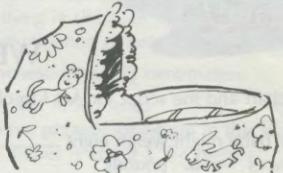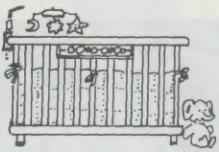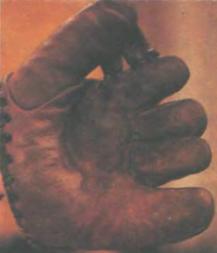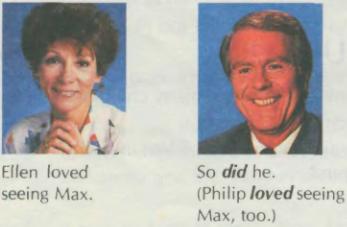Family Album USA 13 — A Real Stewart
Смотреть онлайн в хорошем качестве курс английского языка — сериал Family Album USA 13 серия «A Real Stewart» с английскими субтитрами:
Упражнения и Словарь к 13 серии Family Album USA :
In this episode you will study . . .
VOCABULARY
nephew
adorable
generation
weight
length
height
motto
crib
mature
diaper
GRAMMAR AND EXPRESSIONS
weights and measures
so and neither
auxiliaries as verb substitutes
PRONUNCIATION
weight (wait)
length (lenth or lenkth)
height (hite)
auxiliaries
U.S. LIFE
- What has the American government tried to do about the country’s system of measurement?
- How many children are there in most American families?
YOUR TURN
- Which system of measurement does your country use?
- In your country, are there fewer children in families today than there were in the past?
joyous: happy
nephew. Your nephew is the son of your brother or sister—or of your brother-in-law or sister-in-law. Your niece is the daughter of your brother or sister—or of your brother-in-law or sister-in-law.
adorable: cute
resemble: to look like
I’m very fond of her. = I like her a lot.
Oh my! This expression shows surprise.
any minute: very soon
It’s crowded. = There are too many things or people.
great-grandchild: a child of your grandchild
generation: the new family members who are born at about the same time. Father, son, and grandson are three generations.
to carry on the Stewart name: to use the Stewart name; to keep the Stewart name alive
initial: the first letter of a name
weight: how heavy something or someone is. This is a noun form of the verb weigh. The pronunciation of weight is the same as wait [wat].
eight pounds six ounces: about 4 kilograms
eight-six: eight pounds six ounces. You often shorten phrases for weight in this way.
length: how long something is. This is the noun form of the adjective long. You refer to a baby’s length, but you use height (the noun form of high) to refer to how tall older people are. In the word length, the g is silent, or it can be pronounced as k. The pronunciation of height is hit.
twenty-one inches: about 53 centimeters
five-nine: five feet nine inches. You often shorten phrases for height in this way. Five feet nine inches is about 1 3/4 meters.
I wouldn’t call that tall. = I don’t think that is very tall.
take after: to be like
average: normal. Here, average means not short and not tall.
a real Stewart. The Stewarts often use this phrase. It means that one Stewart is like other members of the Stewart family.
U.S. LIFE
Most countries use the metric system of measurement. This system uses meters, grams, and liters. The United States is one of the few nations that does not use this system in daily life. The government has tried to increase the use of the metric system in the United States. But many Americans have not liked the idea of changing their system of weights and measures.
YOUR TURN
- Why do you think some Americans might not want to change to the metric system?
- Has your nation’s government ever asked the people to change the way they think about something?
Activities
WEIGHT AND MEASURES

A new baby might weigh eight _____.
a. ounces b. pounds
A new baby might be twenty _____ long.
a. inches b. feet
If a man or a woman weighs 300 pounds, he or she is probably _____.
a. fat b. thin
If the height of an adult is four feet ten inches, he or she is _____.
a. tall b. short
A car might travel forty ______ in one hour.
a. yards b. miles
JUST LIKE US
There are some statements, each one said by a member of the Stewart family. Who is talking—and who is he or she talking about? Complete each sentence with the correct name or names. If necessary, look back at the script for Act 1 to find the answers. The first answer is given.
“He looks a lot like you. Mom.”
SUSAN is comparing MAX to ELLEN.
“Oh, he’s got Richard’s eyes, though.”
_____ is comparing _____ to her son.
“And she’s shy with new people, just like he is.»
_____ is comparing _____ to _____.
«Well, that’s because you’re so much like us— wonderful!»
____ is comparing _____ to the rest of the Stewarts.
“You were big, just like Max.”
_____ is comparing _____ to Max.
“ I take after my mother’s family. They were . . . they were . . . they were average.»
_____ is comparing himself to the rest of his mother’s family.
“Max looks just like Grandpa.»
_____ is comparing his nephew to his grandfather.

catch: to have enough time to get
ten-twenty train: the train that leaves at twenty minutes after ten
Grand Central Station: a large train station in Manhattan
TLC: tender loving care; kindness and love
motto: a word, phrase, or sentence to express a belief or a rule to follow
washcloth: a small cloth used for washing the face or body
towels: cloths used for drying yourself after washing or bathing
FOR YOUR INFORMATION
The teddy bear was named after Teddy Roosevelt, the twenty-sixth President of the United States. Mr. Roosevelt was also a famous bear hunter.

cuddly: nice to hold close to you
replaces: puts a new one in place of an old one; substitutes
So do I. = I do, too. The negative form is Neither do I («I don’t, either»).

U.S. LIFE
In American families today, there are fewer children than there were in past generations. Statistics show that the average American family now has one or two children.
YOUR TURN
- In your country, about how many children are there in most families?
- Has the average number of children in families changed in recent years?
Activities
SOMETHING IN COMMON
Study the use of so and neither. Then complete Activities A and B.
Use so and neither to express the same action or condition as in a previous statement. When you use these two words, you do not repeat the verb of the previous statement. But you always use an auxiliary (such as will) after so and neither. So refers to a positive verb; neither refers to a negative verb.
EXAMPLES: Marilyn will stay home now. So will Richard and Max. (Richard and Max will stay home now, too.)
Harry hasn’t met Max. Neither has Michelle. (Michelle hasn’t met Max, either.)
In positive statements with simple, -s, and past verb forms, there is no auxiliary. In these cases, use do, does, or did after so and neither.
A. Complete each of the following sentences with the correct word.
1. Harry will come tomorrow, and so _____ Michelle.
2. Marilyn is glad to be home, and so _____ Richard.
3. Alexandra didn’t visit Max today, and neither _____ the Molinas.
4. Grandpa gave Max a gift, and so _____ Susan.
5. Susan feels a lot of love, and so _____ all the other Stewarts.
B. Complete each of the following sentences with the correct words. Use so or neither and the name or names in parentheses.
1. Grandpa doesn’t have a middle name, and _____. (Max)
2. Marilyn enjoys watching Max sleep, and ______. (Richard)
3. Susan plans to visit Max tomorrow night, and _____. (Harry and Michelle)
baby outfit: clothes for a baby
sensitive: feeling emotions easily
you: a person. Here, you is like the formal pronoun one. In this case, it refers to anyone who grows up without a mother.
mature: to grow; develop
You can count on it. = You can be sure about that.
get along so well: have a good relationship
How can anybody get a word in . . . ? = How can anyone have a chance to speak? Ellen means that everyone in the family likes to talk a lot.
in for trouble: going to have trouble
gets used to voices: becomes accustomed to voices; hearing voices becomes familiar and natural
did. Here, did replaces the verb slept. Auxiliaries often replace verbs, as in short answers like Yes, I did. When an auxiliary is a substitute for a verb, it is stressed; it is pronounced strongly. But when an auxiliary is used with a verb, as in a question, it is not usually stressed.
diaper (verb): to change a baby’s underclothes; to put a fresh diaper on a baby. A diaper (noun) is a soft cloth or paper folded between the legs and around the waist of a baby.
Activities
A REAL STEWART
Here is the Stewarts’ family tree. What are the relationships among the people in the family? Refer to the family tree to complete the sentences below. Choose your answers from the box.
1. Malcolm is Max’s ________.
2. Susan is Max’s _______.
3. Robbie is Max’s ______.
4. Max is Malcolm’s ______.
5. Max is Ellen’s _____.
6. Max is Robbie’s ______.
7. Ellen is Max’s _____.
8. Philip is Max’s _____.
FAMILY MATTERS
What did you learn from the family’s conversation in Act III? On the line to the left of the number, put a check (v)next to each true statement.
___ 1. Michelle is excited about seeing Max.
___ 2. Susan doesn’t know Michelle very well.
___ 3. Robbie thinks Susan and Harry will get married.
___ 4. Philip thinks Susan and Harry will get married.
___ 5. Ellen thinks Harry is a little quiet.
___ 6. Richard thinks the Stewarts talk a lot.
___ 7. Grandpa thinks it is good to tell your opinions.
___ 8. Susan has a lot of experience with babies.








